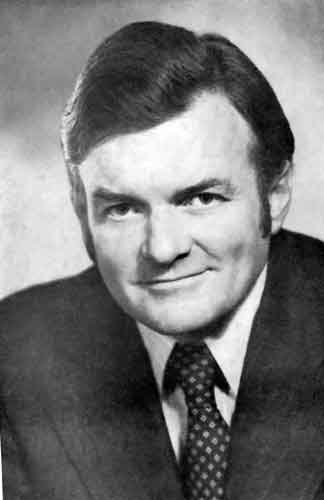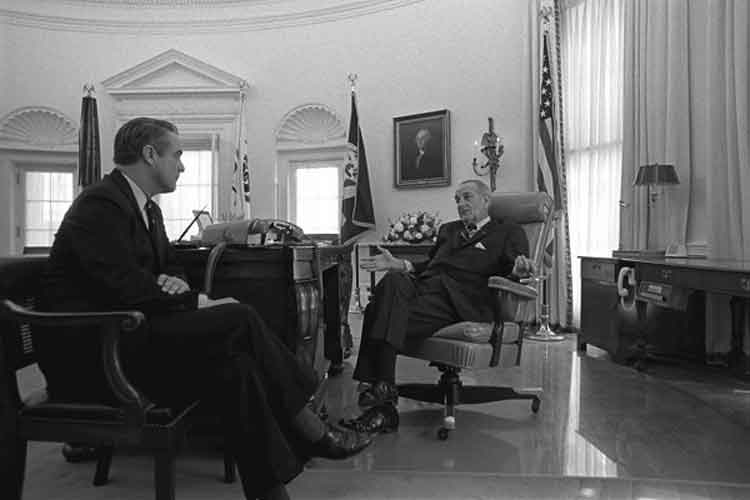


I think we make a mistake today. I can’t document it, but most of the people who seem to be in positions of authority come from a business background or having been successful in another field, rather than finding people who have more feel for what actually goes on.
In 1971 or ’72, we began to change the way we accounted for what we were doing, all because of the invention of the computer. And Einstein had a wonderful, wonderful quote which is more important than anything else I’m going to say today. And that is, “Not everything that counts can be counted, and not everything that is counted, counts.”
There was the case of Shorty. He ended up in the State Hospital. I was living in Windsor at the time. And he ran the pool room. And that’s all he did. And he lived in the back of the pool room. He worked for the guy who owned the building. Nobody even really knew that he drank much. But lo and behold, one day he ends up with the DTs in the next door restaurant and was taken without my knowledge right up to Waterbury. Somebody called me and told me that he’s coming home.
I said, “Okay. What do you think?”
She says, “Well, you know, he’s an older man.” And everything was screwed up where he worked. They hadn’t taken out social security or taxes or any of that stuff. I didn’t have anything to do with it, but we proceeded through the volunteers to get him straightened out in that regard. And the back payments on social security were taken care of.
I remember I went down and met the bus, and I saw him get off the bus. And it’s just like when you see a guy walk out of Windsor State Prison. There’s a little less blood in the face of people that way. There’s always a little white. They’re scared to death, even the ones that you think got it all figured out. And sure enough, Shorty looked just that way. I said, “Hey Shorty. How you doing?”
“Hey Tom, [mumbles].”
So we walked together down to where he was before, where he worked. And I say, “Shorty, how’s chance of seeing you at the AA meeting on Tuesday night?”
He says, “I’ll be there.”
Of course, I’d heard that a few times. But he was there. And the guy stayed sober the rest of his life. I don’t know how you count that when you’re asking for budgets and all the kinds of information that we read in the newspaper that is so important. But the fact is, somebody was there. I don’t take any personal credit. It’s the thing that workers in the field, when they’re given a little flexibility, would do on their own hook.
But as I think back on it, he got sober not because somebody filled out forms or anything else. Shorty got sober because somebody met the bus.
As Secretary of Human Services, when we were building the budget under Tom Salmon in ’73 or 4, I got everybody together. We went up to Stowe, and we had dinner and a meeting and then a big meeting the next day, I guess it was. And I started out, and I said, “As far as I am concerned, folks, the money that goes directly into the hands of the people is the most important part of the money we spend. Services are important, but services are expensive, and we cannot service ourselves out of poverty.” That was a line Shriver–something like that–Shriver used to say, and I agreed with that. You need the services but they were not the solution. They were an aspirin when you needed a heart transplant.
I was in Windsor one day–excuse me, in Springfield. And I got a phone call, anonymously. They said, “You better go down and see Joe Ripchick.” Well, I knew him casually as an alcoholic, problem guy working in the foundry. I went over to his house which was in a relatively middle class neighborhood, the house his father had left him. And I knocked on the door, and not much happened. I walked in. And Joe was there in the middle of the living room, laying on the floor with old dirty blankets and pillows and stuff around and empty bottles and that sort of thing, and nothing. No furniture. Zero.
It turns out he had either sold or burned all the furniture in this house. And there was evidence on the floor, where he tried to make a fire to be warm because only December can be mean cold, and it was December mean cold that day.
I said, “Joe, what are you doing?”
“ Oh, Tommy.”
He called me Tommy. He was a three letter athlete at Springfield High School, a young man with a lot of promise. But I knew when I went in that day that he had been to the State Hospital at least a couple of times and perhaps the other treatment facilities.
So I said, “What do you say, Joe? Let’s go back up to Waterbury. What do you think?”
“Ah,” he says. “Tommy, why don’t you just let me die?”
That’s a memory that has lingered with me for a very long time. It relates a lot to how I began to look at the world. I mean, I was always a pretty liberal-minded guy, but this reinforced my instincts for some reason.
So anyway, he finally agreed to go to Waterbury. And in those days, you didn’t need a deputy sheriff. I just threw him in my car. I didn’t throw him in my car, but I got him in my car. And the probate judge was in Windsor. We drove up to Windsor. And in those days, the probate judge could make the commitment for a month.
The judge had a second floor office. And this is how it worked in those days. I parked in front of the office and ran up the stairs, leaving Joe in the car. I knew the judge. I said, “Any possibility you could come down where he could sign the papers down here? Because he can’t really make it up the stairs.”
And without batting an eyelash, the probate judge came down and accommodated me. And, there again, it was the way we did it in those days. You did what needed to be done, and the differences in status between a probate judge and a person such as myself who was nothing but a state worker and a counselor didn’t mean much of anything. We were all on the same team. And Joe went to Waterbury.
I didn’t see him again for many years. One day I got a call. Someone invited me down to visit several community care homes, they used to call them. There was a woman at the State Hospital; they had one woman who worked on release. Her name was Barbara Oliver. And if a saint ever lived, she was one of them. She and I worked together real good on getting people the best we could.
I went with an associate of mine to this community care home in Windsor. And it was a really nice community care home. And somebody said, before I got there, “Somebody wants to see you.” And they didn’t tell me the name. So I remember walking up the walk. I looked up, and they had a garden, and there was a gate around it, and behind the gate was Joe Ripchick.
He says, “Hey Tommy, how are you? You know.”
And it turns out–I talked to him. He was functioning as assistant manager. He didn’t handle the money. But he was functioning as assistant manager. And he took care of everybody. And he was as happy as he’d probably ever been in his life.
It taught me that the things that you really learn don’t come out of a book or a manual, God knows, of a “how to do it.” You have to remember, you have to say, “ Remember who you’re here for. You’re not here to defend the budget. You’re here to make sure the money goes to the right place.” And I think a lot of people don’t remember well enough, or aren’t sensitized enough to those kind of experiences, so that when they are making laws, they remember these laws have to fit everybody, at least at some level.
